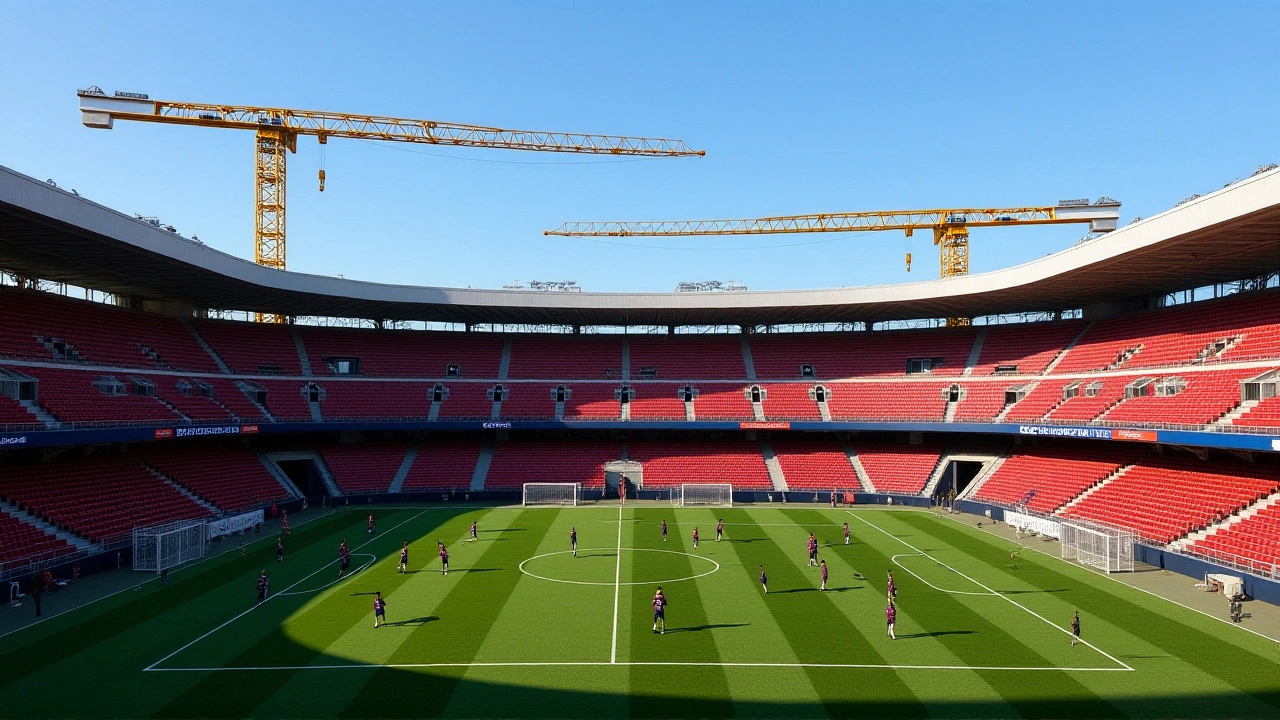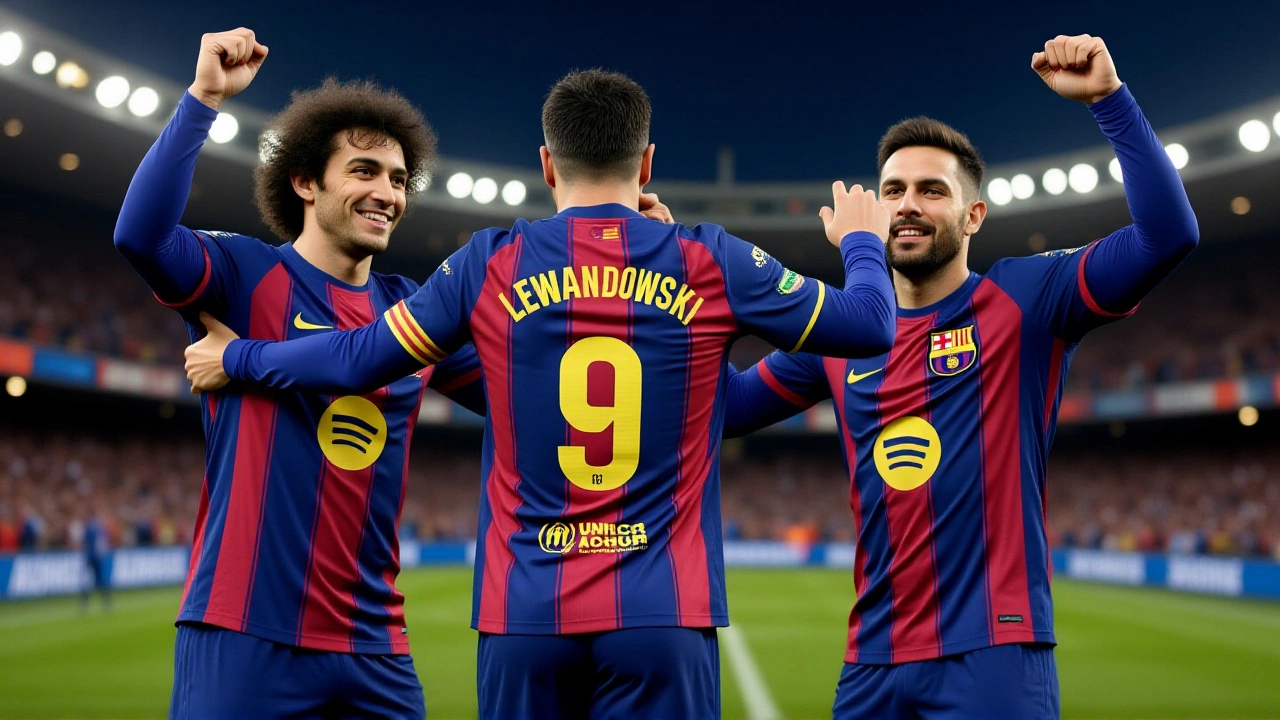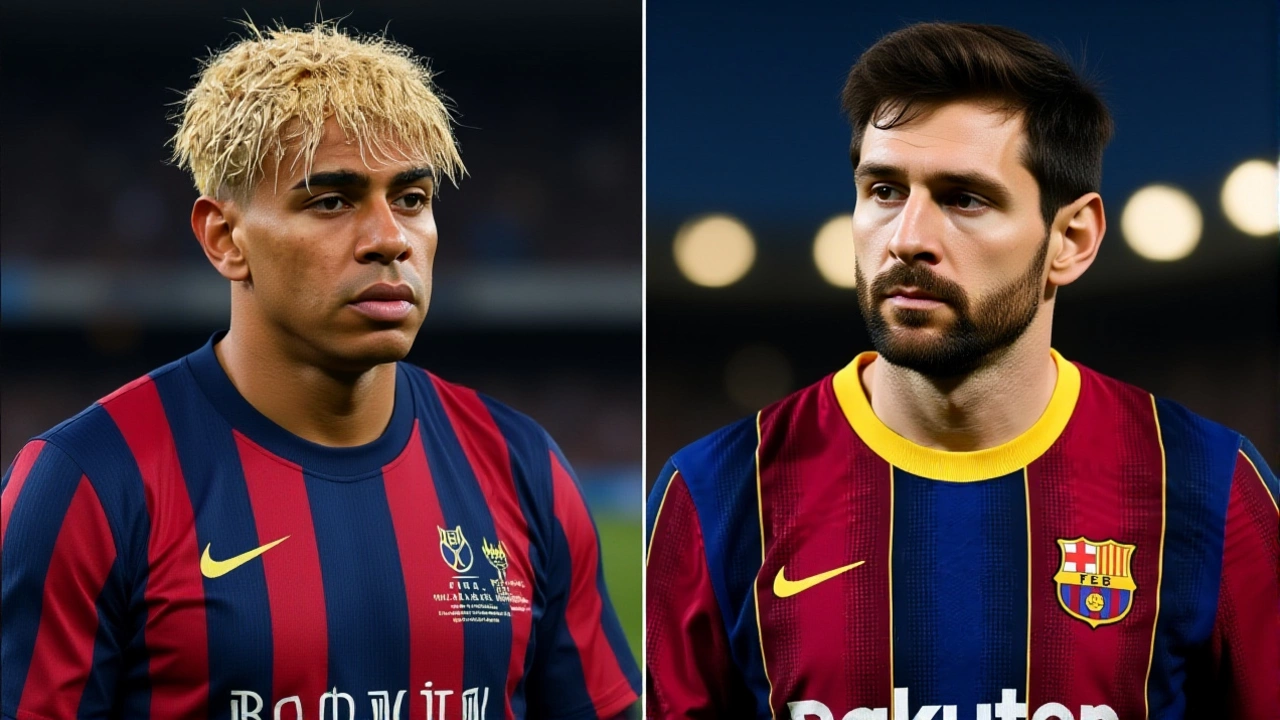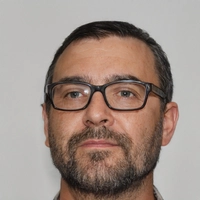There’s no comparison — those are the blunt words from Jordi Alba Ramos, the former FC Barcelona left-back who lived alongside greatness for over a decade. Speaking on November 20, 2024, Alba didn’t mince words: Leo has no rival. It wasn’t just a comment; it was a closing argument in a debate that’s been swirling through Barcelona’s fan forums, sports radio, and social media since Lamine Yamal Nasraoui Ebana — barely 17 — became the youngest player ever to feature in a European Championship final tournament. And yet, even as Yamal dazzles with his pace, vision, and nerve, Alba and Ernesto Valverde Tedín, the man who once managed Messi at FC Barcelona, are urging everyone to stop measuring the future against the past. Because here’s the thing: they’re not just defending Messi. They’re protecting Yamal from the weight of impossible expectations.
What Alba Saw — And Why It Matters
Alba played 520 games for Barcelona between 2012 and 2023. He saw Messi score from impossible angles. He ran beside him in the Champions League final in Paris. He watched the Argentine lift his eighth Ballon d’Or while wearing the same jersey. So when Alba says there’s “no comparison,” he’s not being dismissive of Yamal. He’s being precise. Messi’s 712 goals and 304 assists in 778 appearances for Barcelona? That’s not just stats. That’s a legacy carved into the bones of the club. Yamal, by contrast, has 5 goals and 6 assists in 30+ first-team appearances. He’s a teenager with electric potential. But Alba’s point is simple: you don’t compare a lightning bolt to a supernova.“It’s not about how early he debuted,” Alba told beIN SPORTS. “It’s about what he did after. Messi didn’t just play — he changed the game every time he touched the ball.”
Valverde’s Six Words — The Reality Check
While Alba’s statement made headlines, it was Valverde’s reportedly six-word response that sent ripples through the press room. Sources say the Athletic Club manager, who led Barcelona from 2017 to 2019 and managed Messi during his final peak years, simply said: “He’s good. But Leo was different.” No elaboration. No sugarcoating. Just a cold, clear mirror held up to the hype.Valverde knows what he’s talking about. He watched Messi turn 17 in June 2004 — and still hadn’t debuted for the first team. By the time Messi turned 18, he was scoring in El Clásico. Yamal made his La Liga debut at 15 years, 9 months — younger than anyone ever. He played in Euro 2024 at 16 years, 338 days. He’s already a starter for Spain. But Valverde’s message? Talent isn’t the question. Consistency under pressure is.

The La Masia Legacy — And the Pressure That Comes With It
Both players came through FC Barcelona’s famed La Masia academy in Sant Joan Despí. That’s where the comparison begins. But here’s the twist: Messi was a quiet kid from Rosario who barely spoke Catalan when he arrived. Yamal is a local from Mataró — fluent in Catalan, raised on Barça chants, with a social media following that rivals senior stars. The pressure isn’t just about performance. It’s about identity. Barcelona fans don’t just want a new star. They want a reincarnation.But that’s not fair. And it’s not realistic. Messi didn’t just have skill. He had timing — the perfect blend of genius, hunger, and circumstance. Yamal has none of that history. Only potential. And potential, as Valverde knows, is fragile.
What’s at Stake for Barcelona
With Messi gone — now at Inter Miami — Barcelona’s identity is in flux. Yamal, valued at €100 million by Transfermarkt as of November 2024, is their most valuable asset. His contract runs through 2027. He’s not just a prospect. He’s the centerpiece of their rebuilding plan. But if the media keeps framing him as “Messi 2.0,” the burden becomes unbearable. One bad season. One injury. One missed penalty — and the narrative flips from prodigy to disappointment.Barcelona’s leadership knows this. That’s why they’ve quietly emphasized Yamal’s development over comparisons. His coaches now speak of “his own path,” not “Messi’s shadow.”

What’s Next? Let Yamal Be Yamal
The 2024-2025 La Liga season is Yamal’s true test. He’ll face Real Madrid’s defense, Bayern’s pressure, and the weight of a club desperate for a savior. But if Alba and Valverde are right — and history suggests they are — then Barcelona’s best hope isn’t to recreate Messi. It’s to let Yamal become something entirely new.Maybe he’ll be the first player to win the Ballon d’Or before turning 20. Maybe he’ll lead Spain to World Cup glory. Or maybe he’ll just be a brilliant, unpredictable winger who loves the game. Either way, he deserves to be judged on his own terms. Not as Messi’s successor. But as the first Lamine Yamal.
Frequently Asked Questions
Why are people comparing Lamine Yamal to Lionel Messi?
Because both debuted for FC Barcelona as teenagers and came through La Masia, breaking age records. Yamal became the youngest La Liga player ever at 15 years, 9 months — younger than Messi was when he debuted. He also played in Euro 2024 at 16, making him the youngest in tournament history. That kind of early success triggers comparisons, even though their careers are separated by nearly two decades and vastly different contexts.
What did Ernesto Valverde mean by his six-word reality check?
Though the exact wording wasn’t published, multiple Spanish outlets reported Valverde said something along the lines of, “He’s good. But Leo was different.” As Messi’s former manager, Valverde witnessed firsthand how Messi dominated games mentally and physically. His point wasn’t to diminish Yamal — it was to remind people that greatness isn’t measured by age records, but by sustained, transformative impact over years.
Is Lamine Yamal better than Messi was at the same age?
In terms of appearances and international exposure, yes — Yamal has played more senior games and competed in a major tournament before turning 17, while Messi hadn’t even debuted for Barcelona’s first team at that age. But Messi had already scored in official matches for Barcelona B and was widely recognized as a once-in-a-generation talent by age 16. Yamal’s output is promising, but Messi’s statistical dominance and influence on matches at age 17-18 were unmatched.
How is FC Barcelona managing Yamal’s expectations?
Barcelona’s technical staff have shifted focus from comparisons to individual growth. They’ve limited media interviews, eased his minutes in high-stakes matches, and emphasized his role as a developing talent rather than a savior. The club’s messaging now centers on “building his own legacy,” not filling Messi’s shoes. His €100 million valuation reflects potential, not proven greatness — and the club is carefully managing that perception.
What’s the risk if Yamal doesn’t live up to the hype?
The risk is psychological and financial. If Yamal struggles under constant comparison, he could lose confidence or become a target for fans and critics. Financially, a €100 million valuation means any dip in performance could trigger contract disputes or pressure to sell. Barcelona can’t afford another failed prodigy — they’ve seen it before with players like Ansu Fati. Protecting Yamal’s mental health is now as important as his technical development.
Should fans stop comparing Yamal to Messi entirely?
Yes — not because Yamal isn’t special, but because Messi’s legacy is untouchable. Comparisons distract from Yamal’s unique qualities: his dribbling in tight spaces, his calmness under pressure, his understanding of space. He’s not a clone. He’s a new kind of talent for a new era. The best tribute to Messi isn’t finding his replacement — it’s letting Yamal become the best version of himself.

